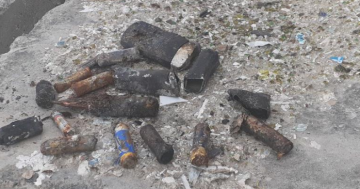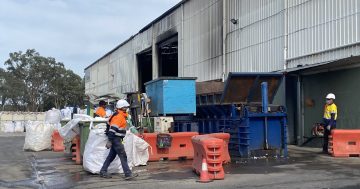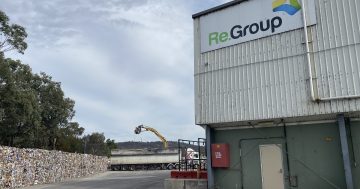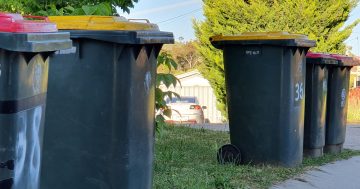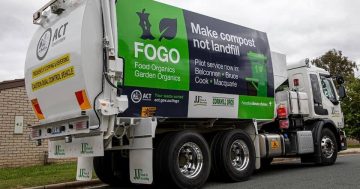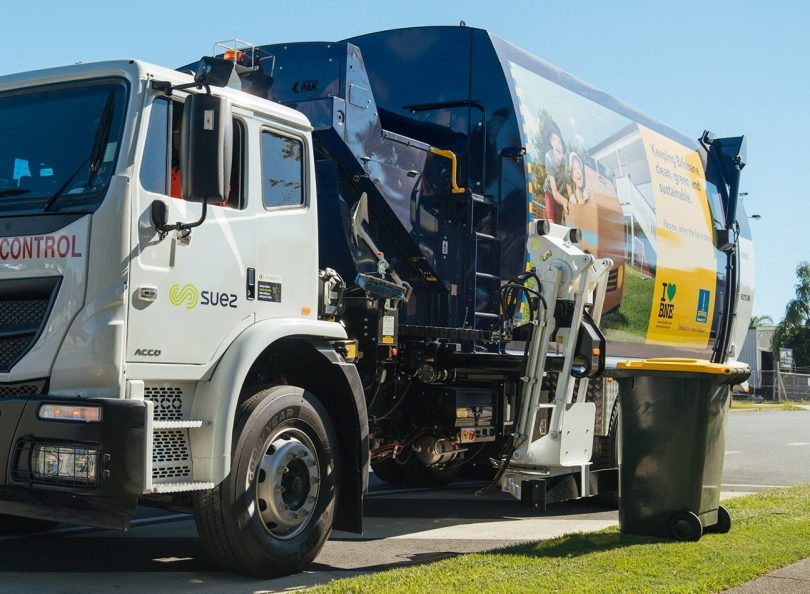
Rubbish trucks in the ACT have previously used AI to detect potholes. But could it do more? Photo: Suez.
Could artificial intelligence (AI) play more of a role in the collection of kerbside rubbish bins? It’s a question the ACT Government is asking.
Not only was it revealed old batteries were to blame for the fire that gutted the Materials Recovery Facility in Hume last year, but a recent audit of what’s in Canberra’s bins also found that contamination rates for recycling bins have risen 14 per cent in the past eight years.
During budget estimate hearings last month, ACT Minister for Transport Canberra and City Services (TCCS) Chris Steel spoke of the need to “ramp up the education” and provide more convenient battery drop-off points for the community.
“This is a known risk across all materials recovery facilities, and hot loads have been occurring in waste trucks right across Australia,” he said.
“It has been increasing over time, as we see the proliferation of batteries used in consumer electronic goods.”
To know where best to target these efforts, TCCS has flagged the use of AI.
“Part of it is also looking at opportunities,” executive branch manager of infrastructure delivery and waste Bruce Fitzgerald said.
“A lot of the ignition points are where waste is under compression in waste trucks. The opportunity for AI, as part of the new fleet of waste collection vehicles to ascertain whether these contaminants are in the truck before the point of compaction, is an important element.”
AI is already used in mobile phone detection cameras stationed around the ACT, tasked with picking out drivers on the phone. A human simply passes an eye over the photo before any infringement notice is issued.
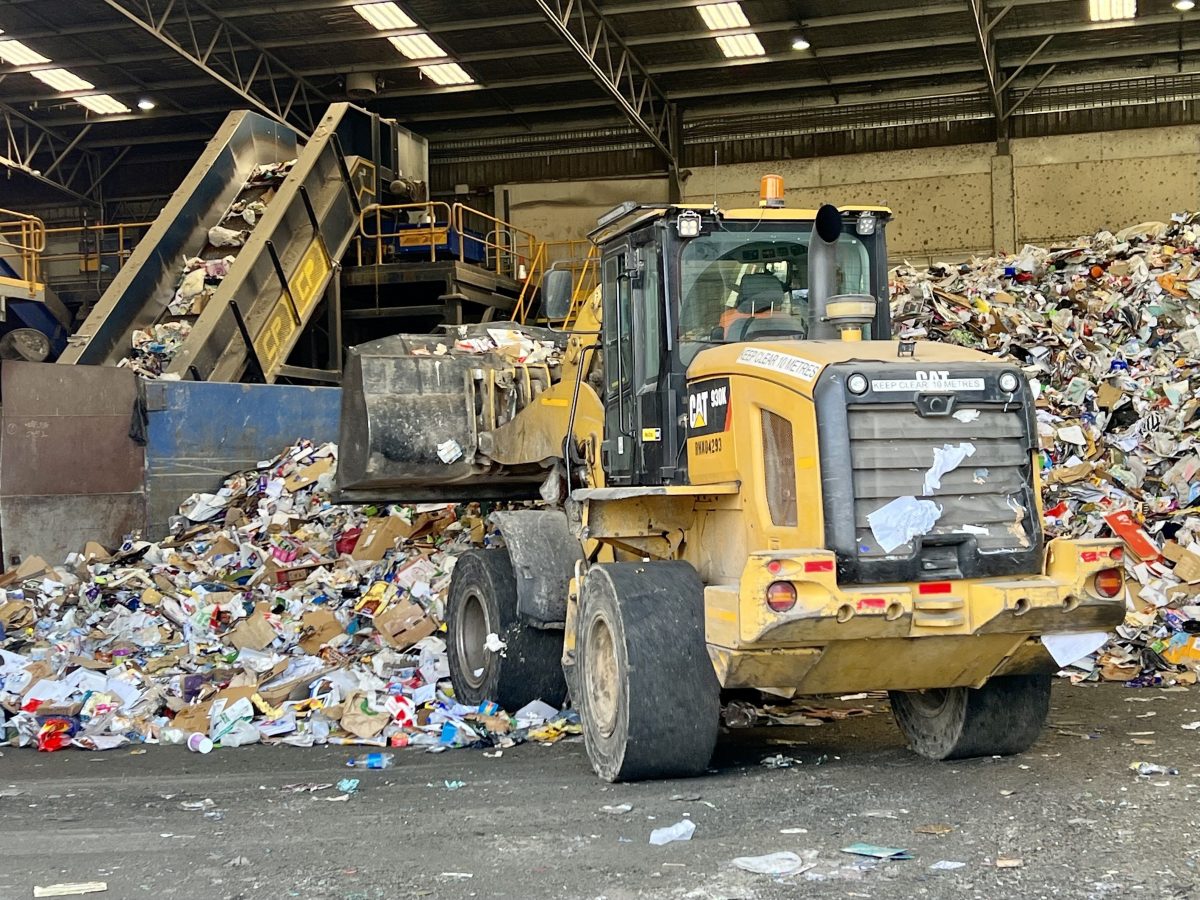
A truck at work in the Material Recovery Facility in Hume, before it was gutted by fire on Boxing Day 2022. Photo: James Coleman.
It’s also been used previously on the ACT’s rubbish trucks.
In a trial held in October 2021, Suez rubbish trucks going along their assigned collection routes were fitted with cameras that scanned the road for areas in need of repair.
Software provided by Victorian-based Frontline Data Systems detected the depth, severity and type of the problem – whether it was a crack, pothole, or subsidence – and gave it a colour rating as well as GPS location.
This data was uploaded at the end of each day and fed back to the Roads ACT repair crews, who then prioritised their daily work schedules to ensure the most dangerous problems get fixed first.
A spokesperson told Region this technology is still in the development stage and the ACT Government “has opted to not use this particular technology to monitor roads at this stage”.
But a tender for a new company to manage the ACT’s household waste collection asks that applicants not only “demonstrate the use of zero-emission vehicle technology” but also offer an “in-vehicle data management system”.
The ACT Government spokesperson said this includes “GPS tracking of the service delivery, capacity to record services issues such as bin conditions, contamination, or customer compliance issues”.
In other words, a way of determining if a bin contains things like old batteries. This data could then be used to target particular suburbs with “educational campaigns” about what can and can’t go in bins.
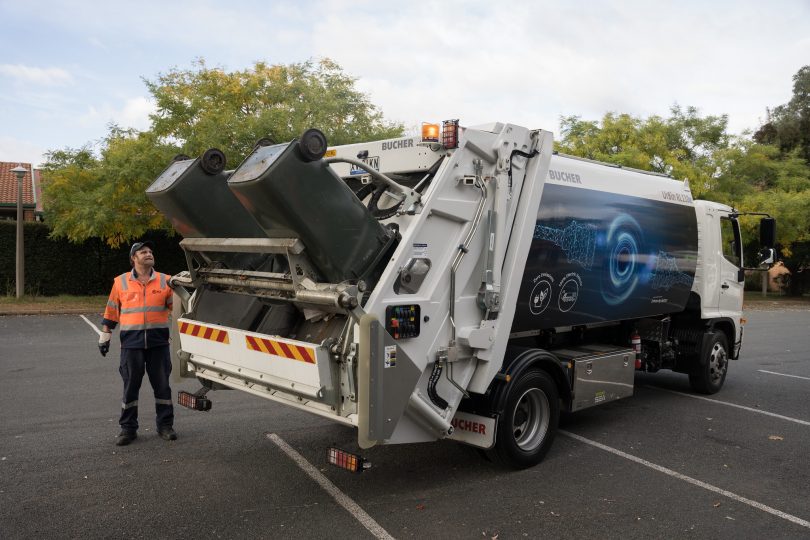
A new contract for the ACT’s household waste collection calls for a zero-emission transition plan. Photo: Transport Canberra and City Services.
“All waste trucks have the opportunity to detect contamination using surveillance cameras,” the spokesperson said.
“Responses may utilise emerging technology such as AI to assist in the early detection of issues. Depending on the technology, information can be obtained to map out the hot spots and type of contamination to deliver targeted education campaigns in those areas.”
Similar technology is also in the works for monitoring the condition of the ACT’s network of footpaths and bicycle lanes.
“The final configuration of the ACT waste trucks will be subject to the procurement process,” the spokesperson said.
“We look forward to exploring potential emerging technology applications in the future as the technology continues to improve.”












